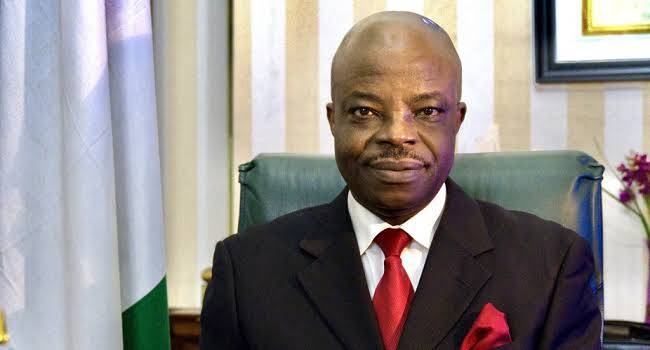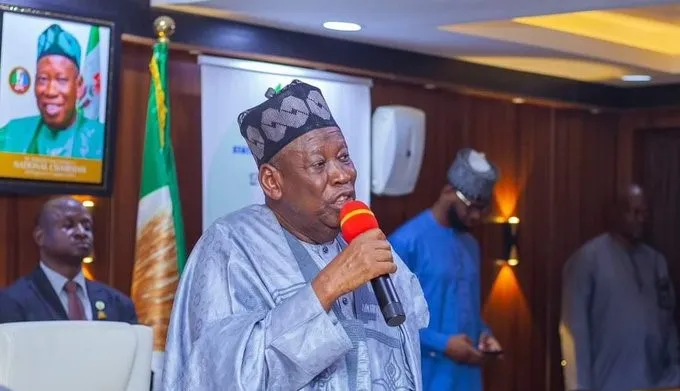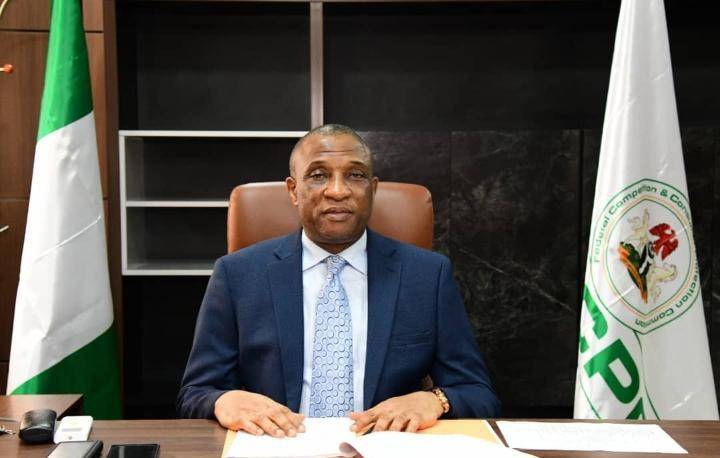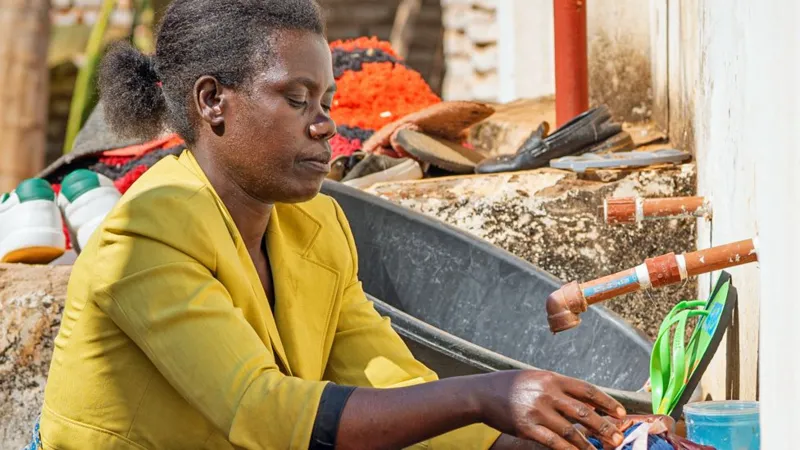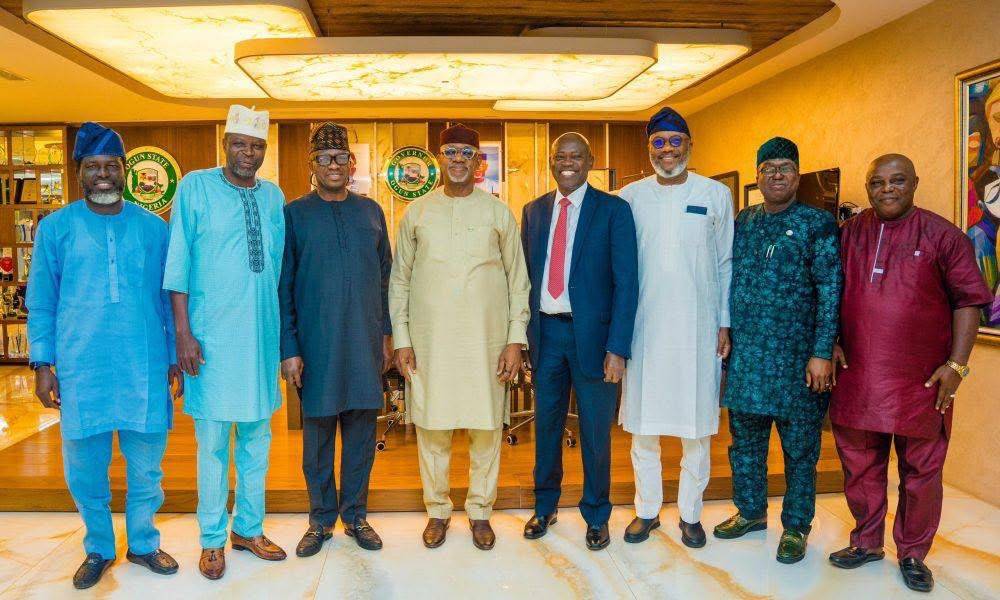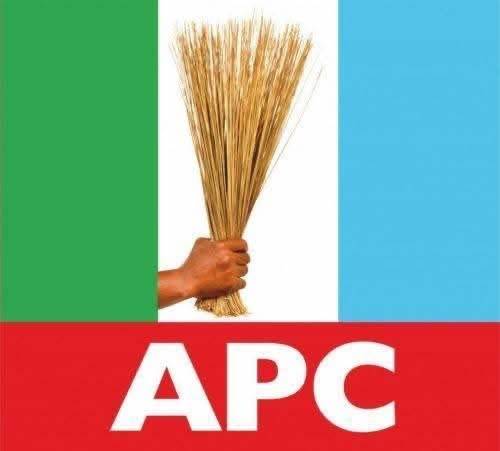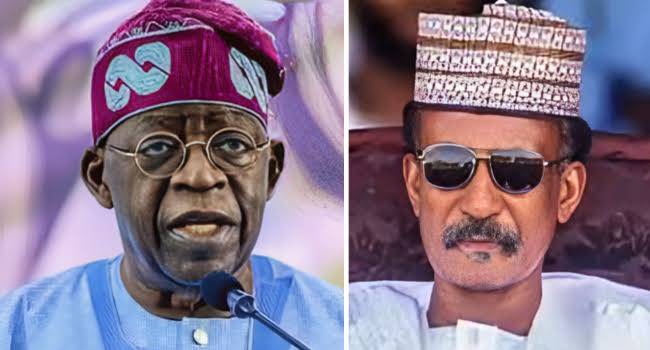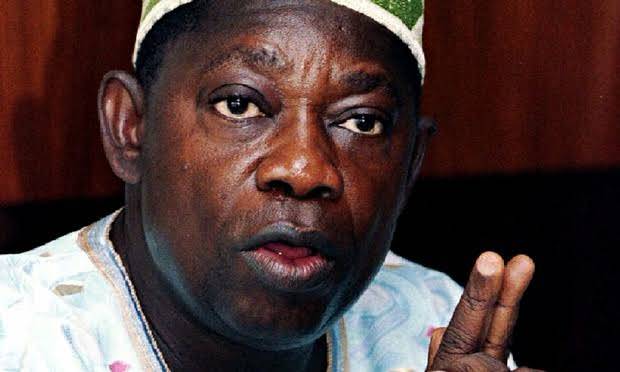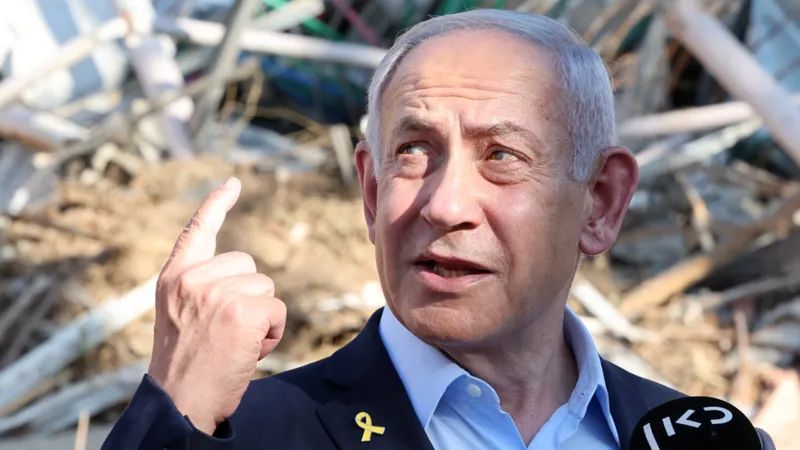The fifty-five (55) independent states that make up Africa have foreign policy interests that are quite similar and somewhat related but different in many respects. However, such interests are pursued by African states at their respective national levels than as a collective or at multilateral level. Conversely, this can be contrasted with the foreign policies of developed countries towards Africa. The United States of America, for example, has a common foreign policy interest in Africa, irrespective of the fact that African nation states have their separate foreign policy interests, though similar in some respects, at the national levels. Same goes with China’s blanket foreign policy interest in Africa. Another example is the European Union which views Africa from a single lens. The EU has a single foreign policy objective in Africa, irrespective of their understanding that Africa is a continent, not a country.
Given the above reality, it would have been expected that the African Union, the umbrella body of African states, just like other regional bodies, should have developed a common foreign policy interest for Africa in approaching the world, especially as most African states have very similar foreign policy interests, but unfortunately, this is not the case. This would have significantly helped Africa in having a more organized reaction to the foreign policy pursuit of the big powers in Africa.
Against the above shambolic nature of Africa’s foreign policy interests, therefore, this paper would nonetheless refrain from taking a holistic approach in discussing the foreign policy interests of Africa as a collective but would rather adopt Nigeria’s foreign policy interest in a multipolar world as a case study.
SECURITY:
Aside from the goal of maintaining security within her territory, which is the primary foreign policy security goal of any sovereign state, Nigeria’s foreign policy pursuit in the area of security transcends its national boundaries. Nigeria strives to ensure that adequate security architecture is also built throughout Sub-Saharan Africa in order to ensure peace, development and stability in the region.
Sub-Saharan Africa is a region fraught with strife and various forms of conflicts. However, Nigeria has done well in ensuring the stability of the region. Nigeria believes that every crisis within its region is a potential danger to her national security interest. As a result, Nigeria has intervened militarily and diplomatically, in conflict situations in Africa. Nigeria, before and now, is unarguably the largest contributor of military and other forms of technical assistance in conflict areas across Africa to ensure peace and cessation of conflicts in the continent. For example, Nigeria’s fidelity with her foreign security interest was clearly demonstrated in her military engagement in the twin peace missions that returned stability in Sierra Leone and Liberia, wherein Nigeria led ECOMOG soldiers in the missions restored peace and democracy in the two countries.
Beyond ECOWAS and ECOMOG platforms, Nigeria’s active participation in UN peacekeeping missions remains a fundamental pillar of her foreign policy. The country has, for years, been a major contributor of troops and policemen to the UN since 1960. At the last count, Nigeria has engaged in the deployment of military contingents, staff officers, unarmed military observers, police and advisers to more than 25 missions globally.
With the resurgence of military coups across Africa, Nigeria has been at the forefront of diplomatic engagements through regional multilateral institutions like the Economic Community of West African States (ECOWAS) and the African Union (AU). The engagement is to ensure return to civil rule, dissuade further unconstitutional overthrow of constituted authority and avert relapse into national conflagrations.
As you may well know, a number of African states are currently under the yoke of military Juntas who seized power after ousting the democratically-elected Presidents in various coup d’états. Some of the recent events took place in countries like Mali, Guinea, Sudan as well as Burkina Faso that recently joined the list. Similarly, after the death Idriss Deby, the erstwhile president of Chad, the country relapsed into a military dictatorship that have heightened tension in the country.
In each of the above situations, Nigeria has been very active in working to avert full-blown conflicts in the affected areas. Just recently, through the instrumentality of Nigeria, ECOWAS has appointed Nigeria’s ex-president, Goodluck Ebele Jonathan, as a special envoy to Mali in order to head its mediation mission in the country. The aim of the Mission is to facilitate dialogue with all Malian warring or aggrieved parties, including the opposition leaders, religious organizations and civil societies, in order to resolve the escalating socio-political situation in the West African State.
Having touched on the above security mediations of Nigeria at the multinational level, it is important to also touch on terrorism and conflicts sweeping through the Sahel up to the Lake Chad Basin. Aside Climate Change which has been classified by the United Nations as the biggest threat confronting the Sahel Region, an emerging lethal phenomenon sweeping through the Sahel is increased violent extremism typified by the rising terrorism.
Nigeria is doing a lot in that regard with the championing of the formation of the Multinational Joint Task Force. As a response to the insecurity in the Lake Chad region, the Multi-National Joint Task Force (MNJTF), was created under the auspices of the Lake Chad Basin Commission (LCBC) comprising forces from the four conflict-hit Lake Chad Basin countries – Nigeria, Cameroon, Chad, and Niger. The Nigerian military, with the support of the MNJTF and the commitment of the Federal Government, under the leadership of President Muhammadu Buhari, has reclaimed many territories hitherto occupied by the terrorists. Even though there is still room for improvement in the operations of the Joint Task Force, a lot has been achieved by the Alliance in stemming the tide of insecurity occasioned by violent extremism in the region.
RUSSIA–UKRAINE WAR
With an unprecedented speed, the world is currently accelerating towards multipolarity as evident by the ongoing Russia–Ukraine war and other associated global security events. The geopolitical fallout of the conflict, according to global watchers, is that the present World Order constructed on bipolarity since the wake of the World War II is speedily moving towards multipolarity.
With the existence of regional hegemons around several regions of the world, there are concerns that a new order creating varied great powers could emerge in different regions of the world. For example, there is great apprehension that the Russian invasion of Ukraine may produce global unintended consequences and may also influence, for example, China’s long-standing stance on Taiwan and its behavior towards India. Similarly, there are fears that if the war persists, it will certainly affect other border regions such as Turkey and Greece, Turkey and Armenia, wherein Turkey has never hidden its position on the Armenia–Azerbaijan conflict, etc. Again, and very instructively, a school of thought also believes that the present war in Europe signposts the return or reenactment of the Cold War in a contemporary world that is fast moving towards multipolarity.
Coming to Africa, there was initially a lack of coherence in African countries’ foreign policy approach towards the Russian–Ukraine war at the onset.
Africa lies several miles away from Russia and Ukraine, yet the impact of the war is felt all across Africa. It is for this reason, and other reasons, that Africa need to show more pronounced and realistic interests in the crisis, understand where it stands in the power dynamics and begin to prepare grounds for addressing the emerging fallouts of the war. It is indeed time for Africans to sit on the side of rational and pragmatic approach to international relations. While applying some degree of caution, African nation states should look out for themselves in the emerging politics of power play and supremacy arising from the Russia–Ukraine conflict.
Nigeria has done commendably well in her approach to the conflagration in, not only taking a pronounced stance on the crisis, but in rallying other African states who were hitherto undecided on the issue. Notwithstanding the level of economic and bilateral relations between Nigeria and Russia on the one hand and Nigeria and Ukraine on the other hand, Nigeria has not shied away from taking a firm position on the crisis. That is the burden placed on the country as an African torchbearer.
Russia is Nigeria’s sixth-largest trade partner in terms of imports. Aside from energy and agricultural products, Nigeria imports potash, a cardinal ingredient for fertilizer production, from Russia. Currently, the disruption in global trade occasioned by myriad sanctions against Russia, as well as its aftermath, has led to a surging increase in gas, diesel and supply of premium motor spirits to Nigeria.
On the side of Ukraine, Nigeria sources significant volume of its iron ore needs for the production of steel and primary manufacturing hardware from Ukraine. Also, both Ukraine and Russia are the largest exporters of Wheat to Nigeria. Again, Russia exports seafoods such as herring, mackerel, and other fish products to Nigeria, while Ukraine, on the other hand, exports dairy and agricultural products to Nigeria. Nigeria had over 5000 students studying in Ukraine.
The significant ties with both countries, as a matter of fact, would have made Nigeria to be more circumspect in approaching the crisis by adopting a more measured and non-aligned posture. But that is not Nigeria, the Giant of Africa! We have demonstrated in our plethora of interventions in Africa and elsewhere that the territorial integrity and sovereignty of a sovereign state is sacrosanct. It will therefore run against the grain of Nigeria’s foreign policy principles and ideals not to stand against the invasion of Ukraine, a sovereign nation, when Nigeria has devoted most of her diplomatic exchanges with the West in advocating for the respect for the independence of African states.
When Nigeria’s position in Russia–Ukraine conflict is, however, juxtaposed with the attitude of EU and her member states, one feels somewhat disappointed in the lethargy of the European Union states in the war currently raging at their backyard. EU member states have just recently voted not to boycott Russian oil and gas, even in the face of threat of annihilation of Ukraine, ostensibly because of the politicians who fear the backlash from their citizens on the rising cost of gas and associated products. This reinforces the maxim that says, “in international politics, there are no permanent friends or enemies, only permanent interest”.
Since the onset of the war, Nigeria has continued to demonstrate her consistency in her approach to the crisis. Both at the level of ECOWAS and AU, Nigeria has continued to rally African countries in taking a unified approach to the Russian invasion of Ukraine. The resultant effect of this is that, save for some very few negligible dissenting voices, Africa has largely been united in its approach to the conflict, all thanks to the robust leadership shown by Nigeria in that regard.
INTERNATIONAL TRADE
The African Continental Free Trade Agreement (AfCFTA) came into effect in January 2021. It has the potential to fast–track the diversification of economies to boost extra- and intra- African trade and has no doubt provided the necessary framework to unite Africa through trade. The main objectives of the AfCFTA are to create a single continental market for goods and services, with free movement of business persons and investments, and thus pave the way for accelerating the establishment of the Customs Union. It will also expand intra–African trade through better harmonization and coordination of trade liberalization and facilitation of instruments across the Regional Economic Communities (RECs) and across Africa in general. The AfCFTA is also expected to enhance competitiveness at the industry and enterprise level through exploitation of opportunities for scale production, continental market access and better reallocation of resources.
Nigeria signed the AfCFTA on 7 July 2019, becoming the 34th member of the trading bloc and ratified the agreement on 5 December 2020. As at May 2022, only 43 of the 54 signatories (80%) have ratified the agreement. The AfCFTA provides the opportunity for Africa to create the world’s largest free trade area since the formation of the World Trade Organization, with the potential to unite more than 1.2 billion people in a $3.4 trillion economic bloc. Estimates from the Economic Commission for Africa (UNECA) suggests that the AfCFTA has the potential to boost intra–African trade by 52.3% by eliminating import duties and to double this trade if non–tariff barriers are also reduced.
Although, start of trading under the AfCFTA regime was supposed to commence on 1 January 2021, under the ‘interim agreement’, to date, however, no trade has taken place under the AfCFTA.
Political fragmentation under the aegis of pseudo–Ideological alignment with either the Western or Eastern bloc sustained market segmentation. This state–of–affairs hardened colonial boundaries, undercutting regional integration and intra–African trade, which has remained dismally low. Today intra–African trade is only about 15% of total trade within the Continent.
Nigeria has the largest economy and market in Africa with a population of over 200 million and stands to benefit from intra–regional trade. However, manufacturing capacity, domestic costs of doing business, firm productivity, infrastructural capability, access to loans and financing are inhibiting factors for true regional integration. Nigerian manufacturers cannot easily export to other African Countries because those countries have easy access to cheaper imports from other regions of the world. And in the domestic market, the free import of pseudo–manufactured goods or trans–shipped finished goods using African Countries as ‘transit camps’ compromise the viability of the locally manufactured goods. Manufacturing is very key for countries to thrive under a competitive free trade regime. The focus is on negotiating the rules of origin which will address the tariff aspect of trade barriers. However, until non-trade barriers such as insecurity, poor infrastructure, port congestion and power issue amongst others are addressed, Nigeria may not stand a chance against other industrialized countries of Africa such as South Africa and Egypt.
The non–trade barriers goes for most countries in Africa. The importance of an industrial base cannot be gainsaid. Europe was only able to create the European Union by merging its industrial base. While we are optimistic about the CFTA, the most fundamental question of industrialization and the fact the Africans operate based on the American model – each one for himself and God for us all, needs to be tackled.
It goes against the vision of regional integration, which ought to be the basis for a CFTA, when foreign countries decide to engage selected/individual markets in an African region or African countries negotiate agreements on a bilateral basis. But what we fail to understand is that the GDP of individual countries in most cases, is one-third of the GDP of the city of Beijing for example. Individually, the African economies cannot compete and with us disunited, the EU, as a combined economy with the largest market would today, push for bilateral negotiations with individual African states. Africa’s GDP is about $3.4 trillion. Regional integration should create labour, goods and free movement in the region and in achieving this, the region must have value chain to enlist innovation and reverse the global trend of uneven development. Africa must insist on local content, skills, innovation in order to industrialize. Taking an example from the European Union – the AIRBUS’ business model in Europe – whereby the company utilizes the competencies of different countries (wings manufactured in the UK, cockpit in France, bulk of the body in Germany, and tires in Italy). Africa needs several flagship projects like airbus to create economies of scale and achieve integration.
The AfCFTA got a major boost with the launch of the Pan-African Payments and Settlement System (PAPSS) which was officially launched in Accra, Ghana. This system will enable a customer in one African country to pay in their own currency, while a seller in another country receives payment in their own currency. After a successful pilot in the West African Monetary Zone (WAMZ), the payment system was launched commercially. Gambia, Ghana, Guinea, Liberia, Nigeria, and Sierra Leone make up the WAMZ, a West African economic and integration organization. With the infrastructure supplied by PAPSS, it is estimated that intra-African trade will expand to 35% from 15% in the next five years.
As the continent’s segmented markets are integrated to produce one of the world’s largest, corporations can capitalize on competitiveness and productivity gains associated with rising economies of scale to develop regional value chains and, again, quicken the diversification of sources of growth and trade.
The AfCFTA has great potentials and benefits for Africa and Africans, and when pursued in a transparent way, it would create wealth and employment for our teeming youth thereby lifting Africa from stagnation and shackles of poverty and hunger. Africa must take a clear direction on the continental agreement to pave way for Africa’s economic emancipation. There is the need for Africa to reverse the trend of being a source of primary produce and recipient of finished goods by complementing each other within the continent to create economies of scale.
AfCFTA State Parties must develop clear implementation strategies and equally address the tariff and non-tariff barriers that militate against the actualization of the objectives of the free trade agreement.
Nigeria is creating special economic zones and special industrial parks that will serve as a hub for manufacturing activities while small and medium enterprise will be linked to them through a deepening of the manufacturing value chain. The Nigerian government is also setting up gas pipelines all over the country so that manufacturers can easily tap into the gas pipelines and access the gas and power for manufacturing plants.
INTERNATIONAL DEVELOPMENT
The international power houses of the global economy viz China, EU and the US have sort to maintain influence across the world through various intervention schemes. Africa is an important and strategic continent with some of the fastest growing economies in the world. With a population of over 1.2 billion people in a $3.4trillion economic bloc, it offers massive potentials for development. The African Development Bank (AfDB) assessed that Africa is the fastest growing continent in the world.
Relations between China and Africa have evolved over the years. From the platform of the
Forum on China-Africa Cooperation (FOCAC) where it engages on Chinese support for African development goals to the framework of the South-South Cooperation (a coalition of global south countries comprising members of the Group of 77 and China) which serves as a unifying identity for many of the countries it encompasses.
The launch of China’s Asia Infrastructure Investment Bank (AIIB), new Silk Road, the Belt and Road Initiative, the penetration of the Chinese Yuan in the African markets as well as string-free loans to partner countries, has further resulted in the expansion of Chinese sphere of influence around the world. China has also used her economic clout to sway countries who maintained diplomatic ties with Taiwan to severe such ties and unrecognise Taiwan as a sovereign state, in return for development assistance. China has been described by the West as asserting economic coerciveness in achieving its geopolitical objectives. Observers would presume that dispute with China over the South China Sea would have resulted in strained relations with its neighbours. However, these countries are beneficiaries of China’s economic outreach in the form of development assistance. China has also established a firm foothold in Africa through loans and other form of aid.
Over time, the West placed less emphasis on developing its relations with Africa and was vibrant in its criticisms of the true motive behind Chinese engagement in Africa, referring to Chinese-led infrastructure projects as debt traps. During this period, the Chinese influence in Africa deepened in several areas, including trade and commerce, military-security and technological ties. What we have seen in recent times is that American policymakers across the political spectrum have not prioritised African countries when it comes to US foreign policy plans. When former President Donald Trump’s administration unveiled the Prosper Africa plan, it framed the continent as a venue for competition with Beijing, rather than offering a positive vision for US-Africa relations. It was presented as America’s response to China’s Belt and Road Initiative. The US is working to rebalance its relations with Africa, with the introduction of the Build Back Better World (B3W).
One would imagine that the EU would have closer relations and largest trade volume with Africa due to historical affinities, but this is not the case. China remains the largest trading partner of Africa. Like the US, the EU launched the Global Gateway and is trying to restore its influence in Africa.
•His Excellency Sarafa Tunji Isola, immediate past Nigeria’s High Commissioner to United Kingdom presented this paper to Diplomatic Society Of Kings College, London.


